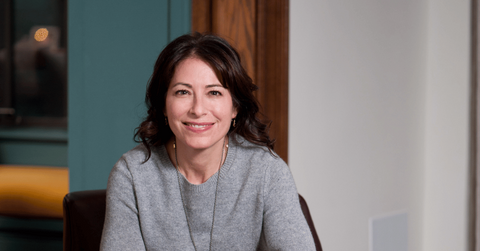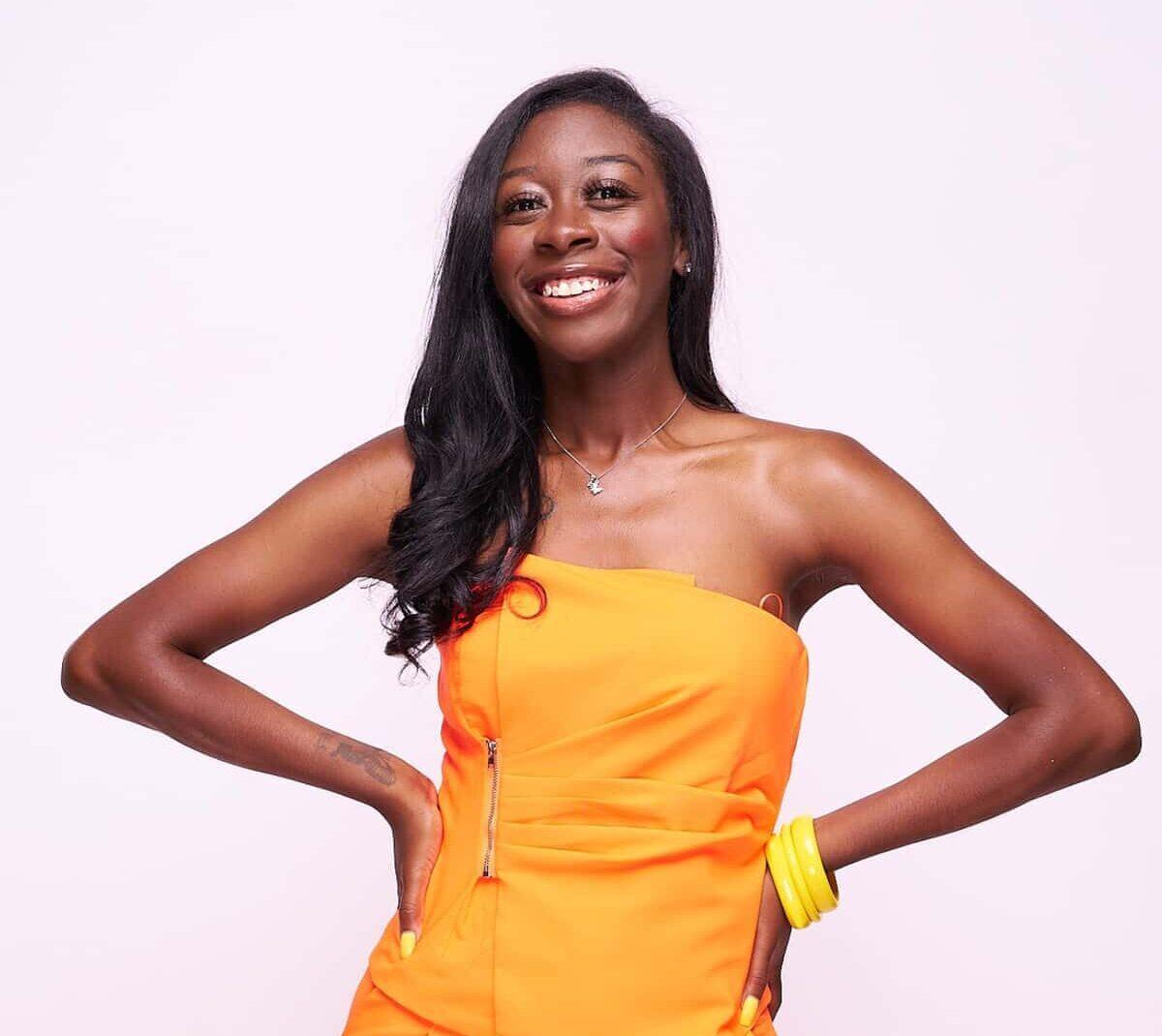Cathie Levine is not a stranger to high-pressure environments. From her beginning as a Capitol Hill staffer to serving in high communications roles dealing with top leaders and major newsrooms, she’s spent a great deal of time navigating spaces where ambition is a part of the value exchange in any important room. But sometimes the pressure of constant high performance can take a toll and surpass purpose. Cathie made an intentional pivot by trading in her communications playbook for a coaching career rooted in compassion.
As a leadership and executive coach, Cathie helps ambitious leaders not just exceed their goals, but discover themselves in a new light during the process. Her work is a staple for merging professional and personal goals to embrace a full human experience. Cathie shares with Her Agenda what made her shift into this purpose-filled career, why it’s important to dream, and how compassion affects every area of our lives.
Her Agenda: You have coached many leaders at very high levels of power.
In those types of rooms, I feel like ambition is kind of non-negotiable. So, how do you help leaders make space for humanity and vulnerability without seeing it as a weakness within those spaces?
Cathie Levine: That’s a great question. I would say two things. First, let me just make the distinction. Your description of my clients is…that is a fair description. But I would also say that I’m informed by [the] work that I did before I became a coach. I worked with very high-profile leaders in politics and media, and people who were at the top of their professions, with very high standards and very exacting expectations. And one of the key takeaways from those experiences was that it’s important to use your voice and to be thoughtful and intentional about what you say. And it’s just as important to take into account how it is that the other person can take in what you’re saying.
And that’s different. Everyone is different in that regard. And that idea of empathic communication informs my coaching. And so I’m hearing in my clients about what they need [in order to be] the best version of themselves and how I can help get them there. One of the gifts of the work that I do at this stage of my career is that I am able to be selective about who I work with. And I can tell pretty quickly if someone has the desire and the self-awareness to balance their ambition with their compassion. And one of the gifts of my job is that I get to be the person who helps them do that.
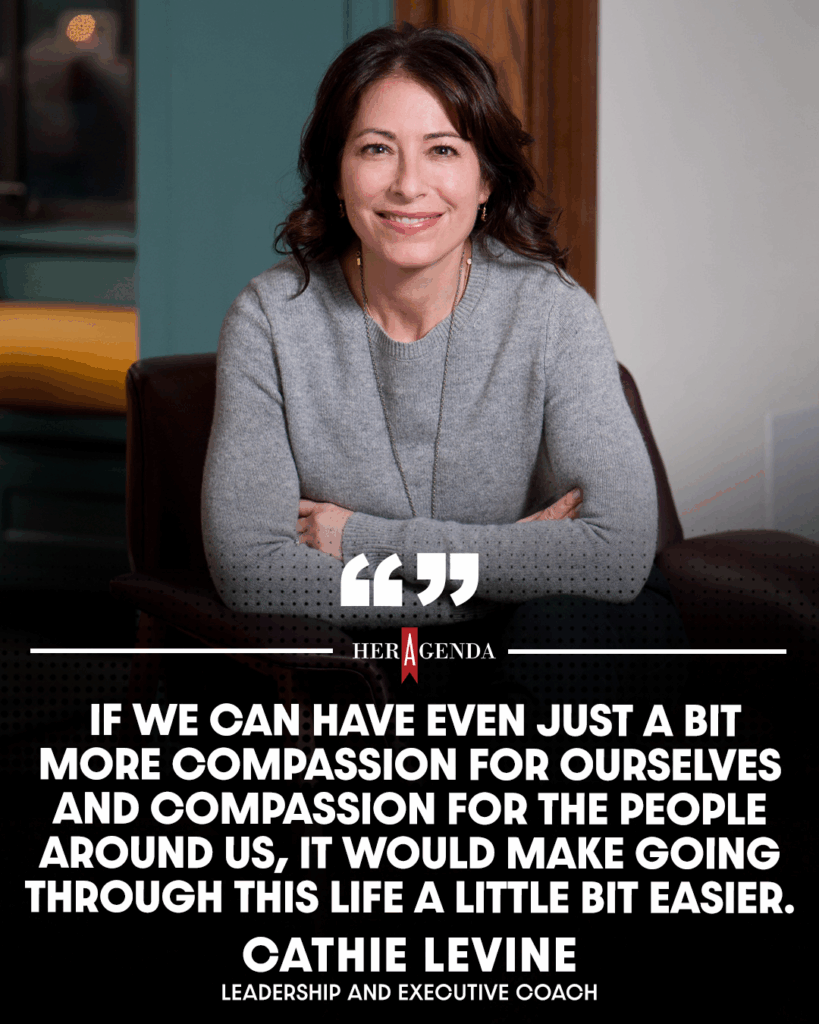
Her Agenda: Thank you for distinguishing between the two within your journey. Now, I believe I read you mix when it comes to your coaching, personal growth and professional goals. Typically, many people like to separate that. What have you learned about what can happen when you unite the two?
Cathie Levine: We are one person and we bring our whole [selves], whether it’s in the workplace or it’s in our personal lives. You put on your game face when you go to your job, or you’re able to let down that guard a bit outside of work. But who we are remains true in both places. And I don’t think you can foster growth in one area of your life without taking into account the other part of it.
So, it’s important to me to understand who my clients are as people and the challenges that they’re facing both at work and in other areas of their lives, because inevitably, those two things impact each other.
Early in my career, I coached a lot of women who were growing in their careers at the same time that they were having families. And one of the things I noticed inevitably was that those women who were having trouble delegating or letting other people take on responsibility in their job were doing similar things at home. And that was limiting in both areas. It has the same impact. It limits your ability to fulfill your potential and give all that you want to give in service of work [or] family. We are who we are wherever we go. And those things that potentially hold us back in one area are invariably holding us back in another one as well.
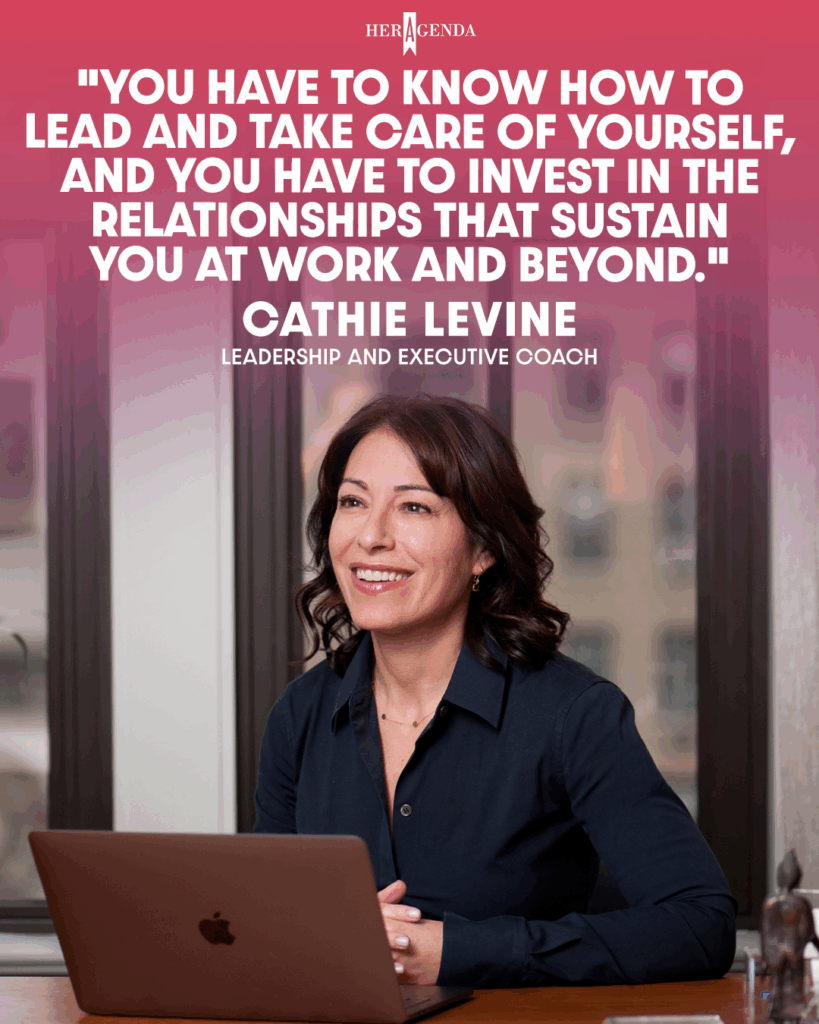
Her Agenda: Wow. And that leads me to my next question. So I can see why compassion is something you preach a lot about, as far as that being a daily practice.
Cathie Levine: It’s compassion for ourselves and our compassion for others. If we’re being honest, everyone’s struggling. There’s some struggle in everybody’s life. We don’t always know the details. We don’t always know what’s going on for other people, but struggle and suffering are universal. And the older I get, the easier it is for me to see how that impacts how we interact with each other. And it’s reinforced my belief that if we can have even just a bit more compassion for ourselves and compassion for the people around us, it would make going through this life a little bit easier.
Her Agenda: You said that you are selective when it comes to your clients and can know who you’re going to get. What’s a pattern that you may notice with clients who kind of have, you know, a career crossroads or just kind of [an] uncertain personal life? How do you guide them to clarity without giving them the direct answer on what they should do?
Cathie Levine: First, let me say, I don’t define my clients by title or industry. I look for a certain mindset, and my clients tend to be both ambitious and purpose-driven. But, I would say what really sets them apart is their self-awareness and willingness to look in the mirror and own their impact. And so, by virtue of that, everyone’s journey is going to look different.
It is my job as a coach to recognize what my clients are seeking and to help them get there. So, at its purest form, the definition of coaching is closing the gap between where you are and where you want to be, and where you want to be as an individual.
That’s an individual question. [And] everyone has a different answer to that. Many people, will have similar stumbling blocks or similar behaviors that get in the way of them achieving where it is that they want to be. But that desired future state, as it’s called, just by the nature of it being so personal, is always going to look different.
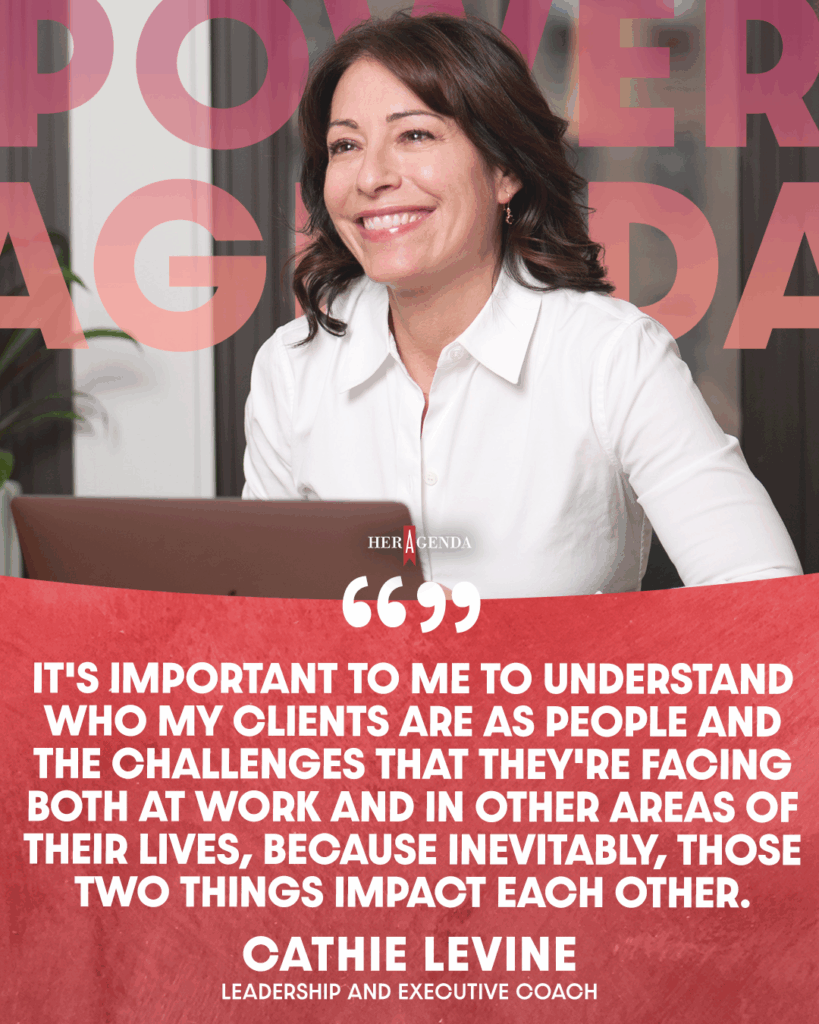
Her Agenda: You were a Communications Executive, and you were still doing purposeful work. What made you take this shift and pivot into coaching?
Cathie Levine: I definitely was on a very specific path. But there was a voice inside of me that was seeking change in how I related to work. Because up until that point, I had been in really 24/7, all-consuming, high-pressure environments, and it had taken a toll. I also, at the time, had young children at home, and I was beginning to recognize that I was bringing the best of me to the office so that I could do my job at the level that it required, and then my family was getting the leftovers basically. That imbalance became very stark to me, and it led me to make a change.
Now, part of the challenge was that I was, as I said, on a career path. And so I knew what the next step in that path would be, but I didn’t really know what else I could possibly want to do where I could use my skill set purposely and find joy in the work that I do. I set out to explore what that could possibly look like for me. And because I was leaving a job without another place to go, I took on some freelance work, just so I could continue to have income while I was doing this self-exploration.
It was so serendipitous that I was working for a client doing comms work for them. I was doing some research about a challenge that they were facing. I was reading a book where the author wrote about the role that coaching plays. And I really didn’t even know what coaching was until I read that book. It was such an aha moment for me, like, ‘Oh, this exists. This is the kind of thing that I could do for someone else.’
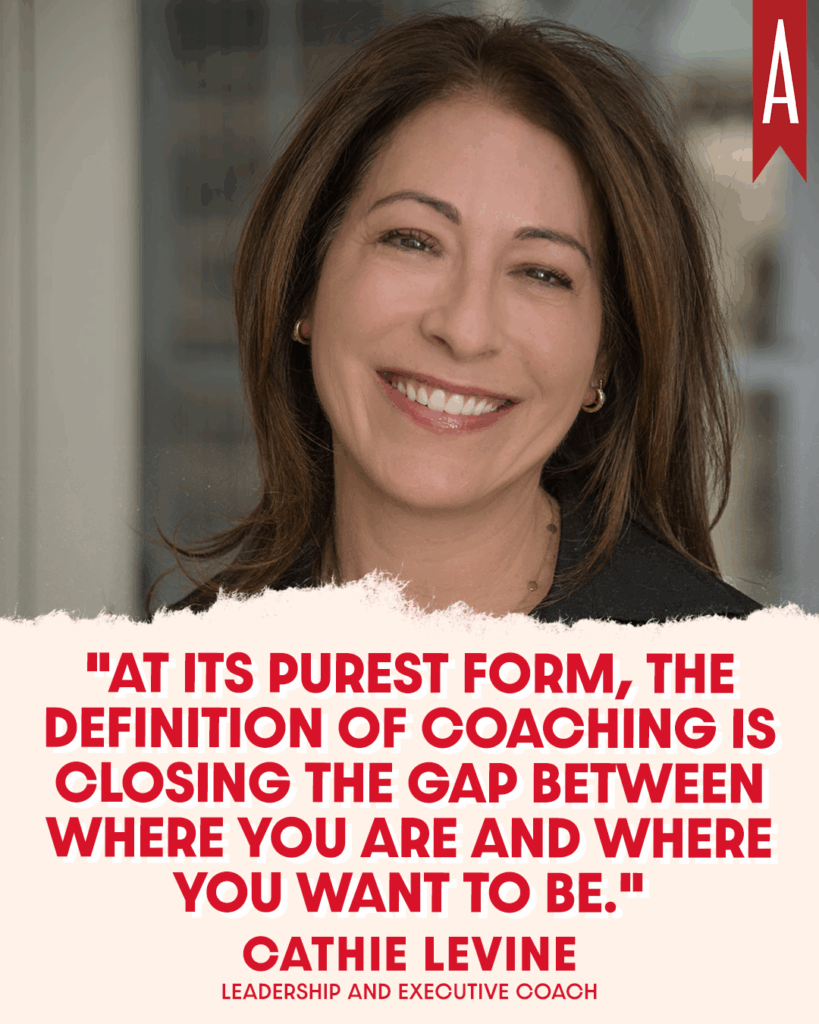
Because in many ways, they are very similar. There’s a lot of overlap in the skill set that is required in communication and in coaching. And being able to understand someone’s story, to be able to synthesize a lot of information, to be able to really get to the heart of an issue, is the essence of communications work. So I was able to see that overlap and I was immediately intrigued. Like I said, a light bulb went off for me. And once I thought about becoming a coach, as the way the universe works, and I truly believe this, I started meeting coaches in the most random places. Like I would be sitting at a table and next to me, I’d overhear a conversation and I was like, ‘Oh, those people are talking about coaching.’ Or someone from my past reached out to me and said, I’m doing a coaching program and I need volunteer clients to practice on. Would you possibly be a client? It was just all these serendipitous moments. And I followed that path and got certified as an executive coach, and the rest is history.
Once I understood what coaching was, it became obvious to me how much I would have benefited from a coach during my career because of the challenges I was facing, as I described earlier about the imbalance in my life and trying to navigate my personal and professional ambitions, I could have used that thought partner as I was navigating that part of my career.
One of the first things I did after I became a coach was put myself out there to be available to people like me who were struggling to navigate that line of personal and professional ambition.
Her Agenda: I love that. So what’s a leading question that you ask clients that tends to stop them in their tracks and [because they’re] hesitant at first, but once they open up and answer, the possibilities of what you can do together are endless?
Cathie Levine: Good question. Sometimes saying: Can you tell me more?- which is the most basic coaching question. [But it] opens people up to question their assumptions. But another thing I would say, actually more pertinent to your question, is this idea of, if you could wave a magic wand, how would it be? And I say that because it forces people to imagine a desired future state to dream, basically to dream about what could be possible.
Adults have a very hard time dreaming. We will say, well, I’d really want it to be this, but it obviously can’t be because of this, this, and this, or I saw this on someone else, but it can’t possibly work for me because, and the thing about a desired future state is you don’t get to self-edit. You have to just put it out there and create your ideal, and then own your ideal.
In the best engagements, we are then reverse-engineering from [our] desired future state and looking at where you are now and figuring out how to close that gap between where you are and where you want to be. The permission to dream, the permission to imagine how things could be is a real gift for clients who have become focus[ed] on the limitations.
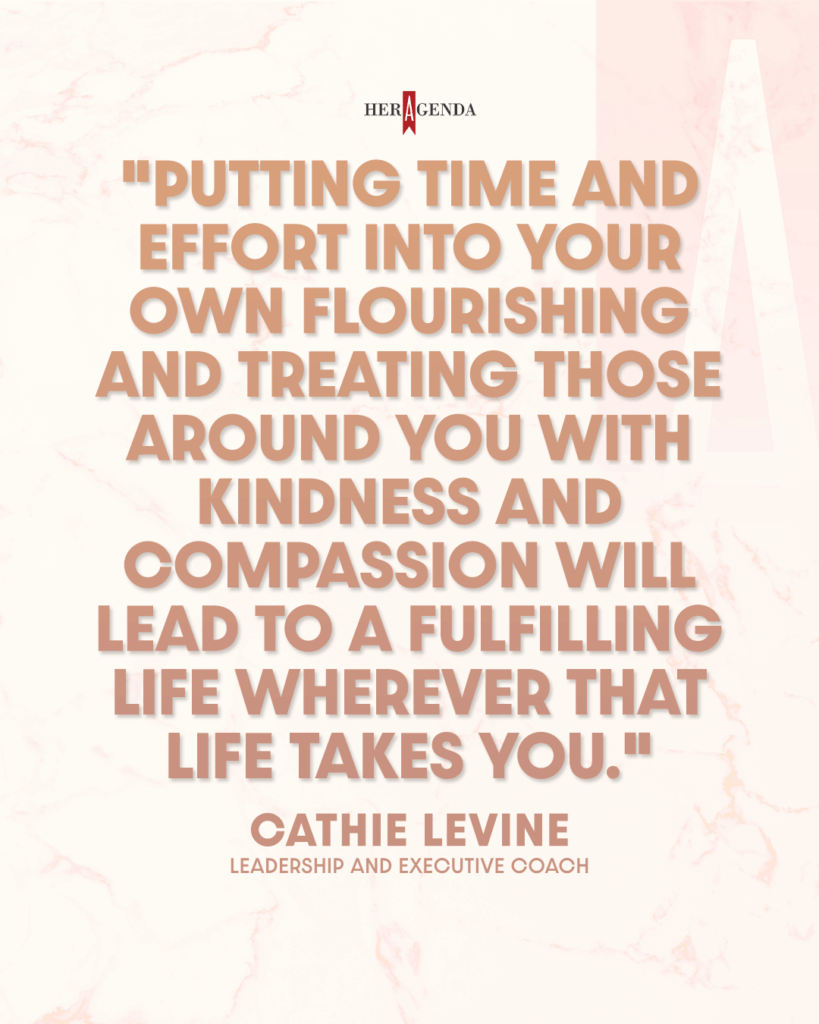
Her Agenda: When you look at the impact that you’re making now, you go from a Comms Executive in high levels from Capitol Hill to newsrooms with all of these great leaders to cultivating, not just a coaching experience for clients, but just a compassionate leadership experience for them. I feel just from our conversation. But what’s the legacy that you hope to leave behind when it comes to your journey as a coaching leader?
Cathie Levine: No matter where you are in your career, no matter where you are in your life, two things remain true. You have to know how to lead and take care of yourself, and you have to invest in the relationships that sustain you at work and beyond. And putting time and effort into your own flourishing and treating those around you with kindness and compassion will lead to a fulfilling life wherever that life takes you.
[Editor’s note: This interview has been edited for length and clarity.]

